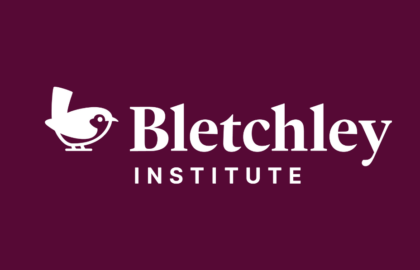How to Make the Most of a Mock Interview

A mock interview is a chance to practice your interviewing skills in a low-stakes environment. Here are 7 tips from Career Coach Andrea Towe for making the most of them so that when you’re headed into the real deal, you’ll be ready.
This article on making the most of a mock interview is part of the Coaching Collective series, featuring tips and expertise from Flatiron School Career Coaches. Every Flatiron School graduate is eligible to receive up to 180 days of 1:1 career coaching with one of our professional coaches. This series is a glimpse of the expertise you can access during career coaching at Flatiron School.
Job interviews….we all look forward to those, right? Like them or not, interviews are almost always a part of the job selection process, and they’re not all bad. Interviews allow you to communicate your transferable skills, how your unique background makes you an excellent fit for a job opportunity, and where you’ll be able to contribute to a team.
No two interviews are alike, and a candidate usually does not know beforehand what questions will be asked during the interview. With that said, what can one do to feel more prepared for an interview? One way to feel more prepared is to go through a practice or “mock interview”. A mock interview is an exercise that helps you practice your interview skills in an environment that’s lower stakes than a real/live interview. It also helps you discover your interview style strengths and any areas of opportunity before you go into a live interview.
As part of Career Services, Flatiron School graduates have the opportunity to go through one or several mock HR interviews, and even a simulated technical interview.
Let’s discuss some tips on how to make the most out of a mock interview.
Choose Your Interviewer
As far as your interviewer(s), choose someone whom you trust and feel comfortable with, but who can also provide you with constructive feedback (and not just what you want to hear). If you know others in jobs who have experience conducting interviews, that is a great place to start. If not, you can also ask a friend, family member, previous co-workers or managers, previous school alumni offices, or even your local Department of Labor or Job Services department.
Dress for the Event
Whether the mock interview is virtual or in-person, take the time to dress in professional attire. Even if a company has a casual dress code, first impressions are still important and can go a long way when it comes to interviews.
Dressing up can also help you take the process more seriously, and can help you decide what clothes to wear before you have a real interview.
Prepare for the Interview
You’ll want to prepare for a mock interview as you would for a real interview. Don’t cut corners with the practice run. Preparation is key, because the more prepared you feel, the more confident you’ll feel, .which, in turn, will help you perform better in the interview.
So, what can you do to prepare?
First off, select a job opportunity you want to use in the mock interview. It could be a job you saw posted on a job board, one you’ve already applied to, or a certain type of job at a particular company. For example, if you’re looking to obtain an opportunity with a local hotel as a Software Engineer, prepare for the mock interview as if you were really interviewing with the hotel for a Software Engineer job.
Next, do some basic research on the company. A common question in real interviews is “What do you know about our company” or “Why do you want to work here as opposed to another company”? You want to have an answer prepared. Research information such as what industry the company is in, where they’re located, what products and services they offer, and any recent press releases, so you are familiar with their current work
Common Interview Questions
You can then practice responses to various common interview questions. Again, you probably won’t know before an actual interview what questions will be asked, but the following questions are a good foundation for practicing as these questions are often asked in some way, shape, or form.
Common questions include:
Tell me about yourself
Why do you want to be a __
What prompted you to apply for this role?
Tell me about any relevant experience you have and how you believe it’s a good fit for this role and our organization.
What are your strengths and weaknesses relative to this opportunity?
As far as your interpersonal skills, how do you handle conflict or disagreements…whether between co-workers or clients?
What are your salary expectations?
Other common questions may include:
What do you do to keep your tech skills updated between jobs
Have you worked remotely?
How do you prioritize various tasks throughout your work day? How do you handle confidential or sensitive information?
Before your mock interview begins, ask your interviewee to also ask you some other random or unprepared questions during the interview. This will help you practice how to quickly and concisely formulate a response as it relates to the job for which you’re interviewing.
During The Mock Interview
Have your interviewer behave as if it were a real interview. Answer the interview questions as concisely as possible, and remember that one of your main objectives in any job interview is to articulate how your skills and background make you an excellent fit for the specific role. Highlight your transferable skills as they relate to the job (you should review the job posting/description again before the interview), and focus on what skills and experience you DO have as opposed to what you DON’T have. Let your passion for the job shine through, and communicate why you want to work for that particular company.
Have 2 or 3 questions prepared to ask the interviewer when given the opportunity, which typically occurs at the end of the interview.
If you want to bring notes with you to an interview, that is fine, but they should only be used as a quick reference. You don’t want to come across as reading from them. You can also write down any important information that the interviewer shares with you.
Finally, if you find yourself nervous and tongue-tied at the beginning of an interview, just let the interviewer know. You can say something like “Bear with me, I’m a little nervous”. Just saying that out loud is a simple ice-breaker and can help you feel more relaxed. Your interviewer will then usually go out of their way to make you feel more comfortable.
Record Your Performance
Record your mock interview. It’s often extremely helpful and insightful to be able to watch your interview performance as you will be able to assess your strong points as well as any areas you want to improve.
For example, you’ll be able to see how concisely you answered each question, your body language, how long your responses were, etc. You can refer back to your recording as often as you like, and even have others watch it and provide feedback. Most people ultimately record more than one mock interview as time goes on, as they’re able to compare their performance from earlier interviews.
Solicit Feedback
After your interview, ask your interviewer(s) for honest, constructive feedback. They can point out what they thought went well and any areas of opportunity.
Be open to feedback and try not to take any suggestions personally. Remember that the interviewer(s) is there to help you put your best foot forward in real interviews.
Ask the interviewer any questions you have, and see if they’re open to practicing with you again or if they can recommend others. On the flip side, maintain a healthy balance and keep all feedback in perspective.
Everyone has a different style; the key is to be yourself and let your unique style and personality shine through in any interview.
Don’t Forget the Thank You Note
Go the extra mile and send your mock interviewer(s) a thank you note/email for their time and consideration. This too is good practice for any real interviews you have, as you always want to send a thank you note, ideally within 24-48 hours.
Many candidates don’t take this extra step, so it will help you stand out, not to mention that it shows professionalism and you value their time.
If you don’t have the email address of the person(s) who interview you, email the contact you have at that company and ask them to forward your thank you note to those individuals. Of course, a good old-fashioned handwritten thank-you note works too!
Final Thoughts
These are some effective tips on how to make the most of mock interviews and how they can help you prepare for the “real deal”!
Again, one of the key strategies to interviewing is feeling prepared. The more prepared you feel, the more likely you’ll show confidence during an interview which will help you perform better.
Interviewing is more of an art than a science, and you’ll feel more confident the more you practice. Even when you don’t receive an offer from a real job interview, it is still good practice and experience.
Remember that effective interviewing is one of the many components of a robust job search strategy. After you land a job, pay it forward and share your knowledge by offering to conduct mock interviews with other job seekers.
About Andrea Towe
Andrea Towe is a Career Coach with Flatiron School. She has 20+ years of experience in career coaching and corporate human resources, including employee relations, talent acquisition, career and leadership development, training development, and facilitation.
Disclaimer: The information in this blog is current as of December 15, 2022. Current policies, offerings, procedures, and programs may differ.



